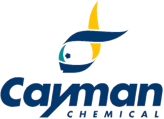Synonyms: DIF|Differentiation-inducing Factor|TNFA|TNFSF2|Tumor Necrosis Factor-α


Applications
ELISA, FC, in vivo
Source / Host
Chimeric Monoclonal Antibody
Immunogen
Recombinant human TNF
Clone
cA2 (Infliximab)
IsoType
IgGκ
Formulation
200 µg of protein A-affinity purified monoclonal antibody
MW
0
Shipment
-20
Long Term Storage
-20
Shelf Life
365
Description
TNF-α is a cytokine and member of the TNF/TNF receptor (TNFR) cytokine superfamily.{54137} TNF-α is produced as a 233-amino acid transmembrane precursor protein from which mature, soluble TNF-α is formed by proteolysis.{54138} Soluble TNF-α is a 157-amino acid polypeptide, cleaved from the precursor protein on the extracellular side of the membrane, that forms bell-shaped homotrimers with the C-termini at the base, each containing three receptor interaction sites.{54139} It is primarily produced by activated macrophages but can also be produced by a variety of other cells, such as T cells, natural killer cells, and osteoblasts.{54139,54140} TNF-α binds to and activates its receptors, TNFR1 and TNFR2, which are associated with intracellular protein complexes that activate caspases to induce cell death, induce p38 MAPK signaling, and initiate NF-κB or AP-1-mediated transcription of immune and inflammatory mediators.{54141} TNF-α promotes inflammation partly by inducing endothelial cells to express adhesion molecules, COX enzymes, and pro-coagulant factors.{54140} Exogenous TNF-α induces death of cancer cells in vitro, as well as disrupts tumor vascularization and induces tumor necrosis in vivo, but it has tumor-promoting properties when produced in the cancer microenvironment.{54137,54143} In contrast, it plays a role in resistance to infection, with mice lacking Tnf having an increased susceptibility to certain microbial infections but lacking resistance to leishmania.{54141} Tnf knockout mice are also resistant to certain types of cancer, including chemically induced skin carcinogenesis.{54137} TNF-α increases lung metastases in a mouse model of fibrosarcoma, an effect that can be reduced by an anti-TNF-α antibody. Mice overexpressing Tnf develop an arthritis similar to rheumatoid arthritis in humans.{54142} TNF-α is produced in the inflamed tissues of patients with inflammatory diseases such as rheumatoid arthritis, and neutralizing antibodies to TNF-α reduce the levels of TNF-α in vitro and in mouse models of the disease.{54140} Cayman’s TNF-α Chimeric Mouse-Rabbit Monoclonal Antibody (Clone cA2) was produced recombinantly from the original cA2 antibody sequence and can be used for ELISA and flow cytometry (FC) applications, as well as in vivo. The cA2 antibody was generated by immunization of mice with recombinant human TNF, followed by fusion of the mouse spleen cells with an SP2/0 hybridoma and subcloning.{66190}
ESCLUSIVAMENTE PER USO DI RICERCA (RUO) e non per uso terapeutico o diagnostico su uomini o animali. Il prodotto NON è un Dispositivo Medico o un Diagnostico in Vitro.
PRODUCT FOR RESEARCH USE ONLY (RUO) and not for therapeutic or diagnostic use on humans or animals. The product is NOT a Medical Device or an In-Vitro Diagnostic (IVD).



